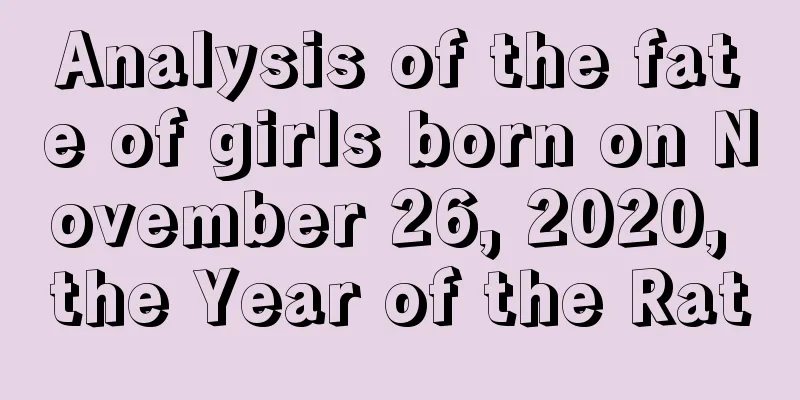What is the meaning of Laba? What is the meaning of Laba Festival?

Children, don’t be anxious, the New Year will come after Laba Festival. These ballads passed down from childhood represent how important the Laba Festival is. So, what exactly is the meaning of Laba Festival? It deserves such attention. The twelfth month of the lunar calendar is also known as the twelfth month, or the wax month. So what are the things to do and not to do in the twelfth month? Visit Shui Mo Xiansheng's website to learn more about the twelfth lunar month of 2018.What is the meaning of Laba?The eighth day of the twelfth lunar month (December) every year is called "Laba" Festival, which was called "La Day" in ancient times. It is an ancient national traditional festival. Broadly speaking, Laba on the eighth day of the twelfth lunar month, the Kitchen God worship on the twenty-fourth day of the twelfth lunar month, and the Lantern Festival on the fifteenth day of the first lunar month are all part of the traditional Spring Festival, and Laba marks the beginning of the entire new year celebration. The formation of the "Laba" Festival is the product of the combination of two aspects: one is the ancient "La Festival"; the other is the influence of Buddhist culture. This festival can be regarded as the product of the integration of ancient Chinese traditional culture and foreign Buddhist culture.How did Laba Festival come about?1. The "local theory" believes that the La Festival originated from the La Festival. At the end of the twelfth lunar month, our ancestors sacrificed the hunted animals to the gods and ancestors, praying for the new year to avoid disasters and usher in good fortune. During the Southern and Northern Dynasties, this day was designated as December 8th. 2. It is said that when Sakyamuni Buddha had not yet attained enlightenment and was still practicing asceticism, he once fainted on the ground due to exhaustion, hunger and exhaustion. He was rescued by a shepherdess, who boiled the grains and wild fruits she carried with spring water into a milky porridge for the Buddha to drink. This saved the Buddha from death. Later, when Sakyamuni became a Buddha, it was the eighth day of the twelfth lunar month. In order not to forget the suffering he endured during his six years of hard practice, Buddhists only ate some hemp and wheat every day. In order to commemorate the kindness of the shepherdess, they imitated the shepherdess's "mixed porridge" and ate it on the eighth day of the twelfth lunar month, the day of Buddha's enlightenment, to commemorate him. |
Recommend
Is it suitable to set up the bed on the first day of the Lunar New Year in 2019? Is it a good day to set up the bed on the Spring Festival of the Year of the Pig?
Introduction: According to Chinese tradition, it i...
Is October 19th of the lunar calendar 2020 a good day? Is that an auspicious day?
Different days have different good and bad fortune...
What constellation is the tenth day of the twelfth lunar month in 2018?
The twelfth lunar month is also known as the end o...
Can I get a haircut on September 26th of the lunar calendar in 2018? Analysis of the auspiciousness and inauspiciousness of the time
In order to maintain a clean and tidy appearance, ...
What date is December 18th of 2017? What day is it?
The Fortune Teller website has prepared a large a...
Is February 18th of the lunar calendar in 2022 an auspicious day for proposing marriage? Can I propose marriage?
If you want to propose marriage smoothly, you also...
What are the auspicious times and taboos on the 28th day of the third lunar month in 2017?
Introduction: Entering the third month of the luna...
What is the fate of a girl born on December 16th of the lunar calendar in 2018?
What is the fate of a girl born on December 16th o...
What is the attribute of the Rain Water day among the 24 solar terms? Is it the day to return to the mother's house?
Each solar term has its own attributes, meaning, c...
What can’t be done during the Great Cold? Is it a good idea to move during the Great Cold in 2022?
The last solar term of the 24 solar terms is Dahan...
The twenty-fourth day of the eleventh lunar month in 2017 is a good day?
Winter months are cold, but when everything goes ...
When is the summer solstice in 2021 in the lunar calendar? When is the Summer Solstice? What are the three signs of the summer solstice?
The summer solstice is hot and the temperature is ...
Do people born during the Summer Solstice who are born under the sign of the Tiger have good fate and fortune? Do they develop smoothly?
After the summer solstice, yin energy begins to gr...
Is the fifth day of the ninth lunar month in 2018 suitable for funerals?
Is the fifth day of the ninth lunar month in 2018 ...
What is the lunar calendar for Qingming Festival on March 5, 2022? Is it time to move house during Qingming Festival to save energy?
Each season is divided into three months: Meng, Zh...









